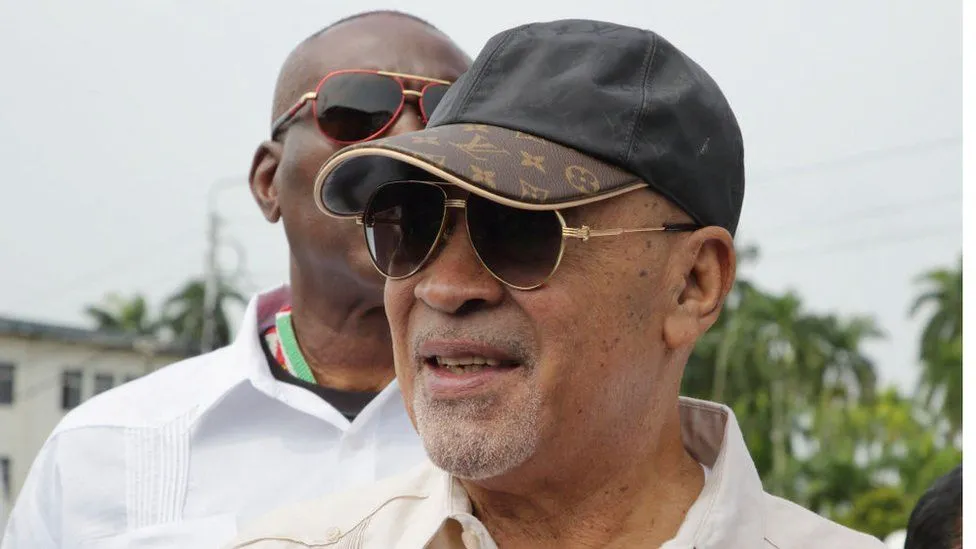
[ad_1]
Desi Bouterse, the previous president of Suriname, has defied a 20-year jail sentence for his involvement within the 1982 bloodbath.
This determination marks one other chapter in Suriname’s tumultuous political historical past. Bouterse’s trial, a 16-year authorized journey, culminated with the Excessive Court docket’s verdict in December.
In 1982, the “December Murders” occurred in Suriname, the place the navy authorities underneath military chief Desi Bouterse killed 15 outstanding residents, together with journalists and legal professionals.
His spouse, Ingrid Bouterse, has referred to as the trial politically motivated, asserting a political response to the sentence.
Desi Bouterse himself accused the Netherlands, Suriname’s former colonial ruler, of conspiring towards him.
His get together, the Nationwide Democratic Celebration, stands firmly behind him, as confirmed by Ramón Abrahams, an in depth ally and the get together’s vice-president.
At his residence in Paramaribo, supporters gathered to again Bouterse. Regardless of a 2012 parliamentary amnesty for the 1982 executions, the authorized course of continued.

Bouterse’s path to energy, first as a sergeant main main a coup in 1980, displays the nation’s unstable political panorama, influenced by navy and political conflicts.
Bouterse briefly stepped down in 1987 amid worldwide stress however returned to energy in 1990 by means of one other coup.
He was elected president in 2010, serving a decade till 2020. His trial started in 2007, resulting in a 2019 conviction in absentia, upheld in 2020.
The Justice Ministry is arranging a specific cell for Bouterse within the Suriname Army Hospital complicated.
Whereas some convicts have surrendered, Bouterse and his former bodyguard stay at massive. Abrahams reassured the general public of Bouterse’s security inside Suriname’s borders.
Surinam’s risky political local weather
Earlier than his conviction, Bouterse referred to as for calm amongst his followers, aiming to endure till the 2025 elections.
He cautioned towards potential unrest, highlighting Suriname’s risky political local weather.
Bouterse’s reign, marred by human rights and corruption points, displays the challenges in Suriname’s governance.
The 1982 bloodbath stands as a stark reminder of the nation’s battle with justice and reconciliation.
Bouterse’s enduring affect and divided public opinion illustrate the complicated legacy of leaders in international locations with histories of navy rule and political strife.
His case underscores the challenges in establishing accountability for previous abuses whereas advancing in direction of secure, democratic governance.
[ad_2]